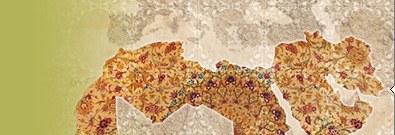Main Content
Collaborations | Funding
The Turning Points research group is funded by a Gottfried Wilhelm Leibniz Award of the German Research Foundation (DFG).
We maintain close ties with a number of networks and institutions in Germany and abroad with whom we collaborate in various research activities:
Inhalt ausklappen Inhalt einklappen Re-Configurations

The Research Network Reconfigurations brings together academics of different disciplines, institutes and research centers at the Philipps University Marburg. Since its founding in 2013 it works to connect MENA regional studies with systematic disciplines. The Network thus functions as a site for the regular exchange of content, as well as for conceptual and methodological debates on current and historical transformation processes (also in a comparative regional perspective).
Inhalt ausklappen Inhalt einklappen Europe in the Middle East—the Middle East in Europe (EUME)
is a multi-disciplinary research program at the Berlin-based Forum Transregionale Studien. EUME seeks to rethink key concepts and premises that link and divide Europe and the Middle East. Within the framework of five research fields in the disciplines of Literature, Political Philosophy, Urban History, Philology-cum-Late Antiquity, and Islamic Studies, the program attempts to recollect the legacies of Europe in the Middle East and of the Middle East in Europe in an inclusive way that aims to do justice to their entanglements.
Inhalt ausklappen Inhalt einklappen Forum for the Study of Popular Culture at Cairo University
The Forum for the Study of Popular Culture aims at promoting research in the field of popular culture regionally and internationally. For this end, it seeks to create a network that would facilitate the exchange of expertise among scholars in the field of popular culture, and to encourage and sponsor young researchers from Egypt and the Arab region who opt for studying this under-researched field.
Inhalt ausklappen Inhalt einklappen Department of Culture Studies and Oriental Languages at University of Oslo
The project "In 2016: How it felt to live in the Arab World five years after the ‘Arab Spring’" will provide an ‘encyclopedia of 2016’ that enables users, in a snapshot portrait of one year, to ‘jump right into’ and move around (via cross-references) in post-revolutionary Arab realities; a tool that allows readers to approximate the experience of ‘how it feels’ to live in the Arab World in this period of transition and historic change.